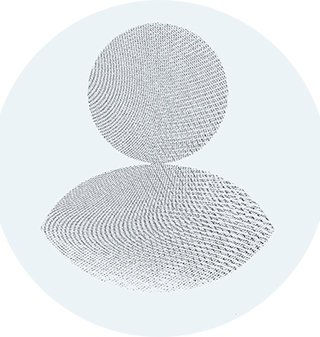Albania is the first country to take a real step toward “algocracy”: government by algorithm. In September its prime minister announced that all decisions concerning which private suppliers will provide goods and services to Albania’s government — over $1 billion annually — will be made by an A.I. avatar named Diella. Albania has long suffered from corruption, particularly in this realm. The unbiased, competent, algorithmic Diella is thought to be the solution.
It’s a seductive trade: When democratic systems fail, simply replace them with algorithmic ones. But it’s the wrong reflex. Algorithms can optimize efficiency, but they can’t decide between competing values — the very choices that lie at the heart of democratic politics.
Rather than replace democracy with A.I., we must instead use A.I. to reinvigorate democracy, making it more responsive, more deliberative and more worthy of public trust.
Unfortunately, this isn’t the path we’re currently on.
A majority of adults across 12 high-income countries say they are dissatisfied with the way their democracy is working.
Meanwhile, A.I. systems continue to improve rapidly. We already have models that outstrip human performers in fields like geometry and medical imaging. The public is also becoming more familiar with the technology (even if Americans use it significantly less than those in many other nations do, most notably in China).
Perhaps it isn’t surprising, then, that people around the world already trust emergent A.I. systems over established democratic ones. Three rounds of surveys run by the Collective Intelligence Project between March and August 2025 consistently found that people believed A.I. chatbots could make better decisions on their behalf than their elected representatives.
But replacing democratic deliberation with algorithmic efficiency doesn’t solve the underlying crisis. It merely substitutes one form of distance between people and power for another. When algorithms determine, say, budget allocations or public benefits with no explanation and no appeal, the result is the same alienation and disillusionment we’re already seeing from distant, unresponsive institutions — except now there’s no one to hold accountable. With human dignity relegated to an afterthought, polarization deepens and trust erodes further.
Today’s A.I.-powered algorithms are largely built around business models in which conflict drives revenue. As A.I. systems become more powerful and capable of ideological manipulation, these threats will only intensify.
To save democracy, America needs a different path: one that uses A.I. to give people more of a voice in our policy choices and better results.
A.I. can help make governments more effective, cutting red tape, improving public services and opening up decision-making to the public. In Taiwan, the platform vTaiwan has spent over a decade demonstrating how A.I. can strengthen rather than supplant democratic deliberation. When Uber arrived in Taiwan in 2013, it triggered the same conflicts that erupted in cities worldwide: taxi drivers versus riders, incumbents versus newcomers, regulation versus innovation. Instead of letting the loudest voices dominate or having lobbyists and bureaucrats decide behind closed doors, Taiwan used A.I.-powered tools to facilitate some version of mass deliberation.
Democracy has always been limited by logistics. You can’t fit millions of people in a room; you can’t have everyone speak; you can’t process that many perspectives. A.I. has the ability to remove many of those constraints by summarizing thousands of public comments, identifying common concerns and helping policymakers understand constituent priorities. It can make legislative text accessible to ordinary citizens, explain trade-offs in plain language and help people articulate their preferences. It can even scale deliberation across geographies and languages, making global coordination feasible in ways that were previously unimaginable.
But the window for this path is not infinite. Every month that democracies remain dysfunctional while A.I. capabilities improve, algocracy becomes more appealing.
The future of democracy doesn’t require us to reject A.I. Quite the opposite. We need A.I. to make democracy work for the 21st century. But we must also be careful about what we ask A.I. to do. Not to decide for us, but to help us govern ourselves better.
The New York Times
